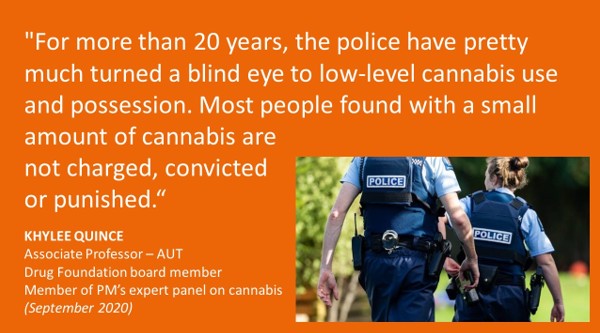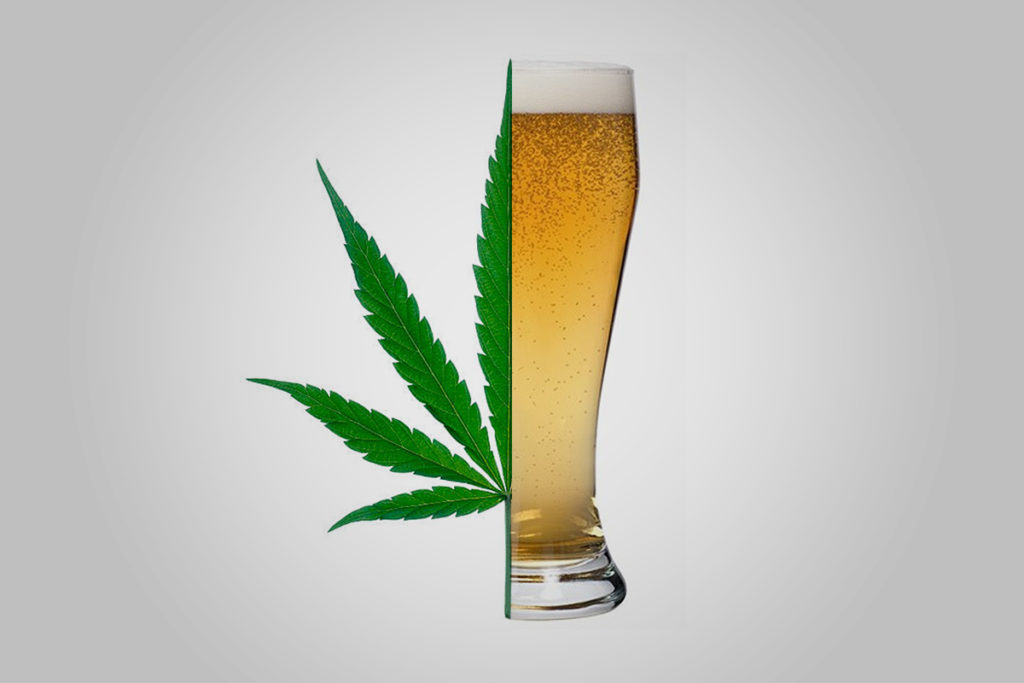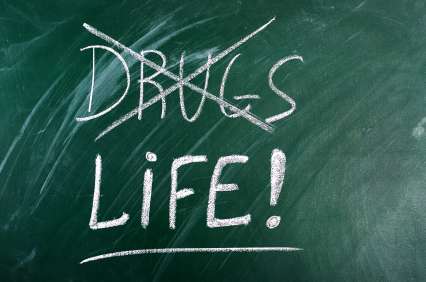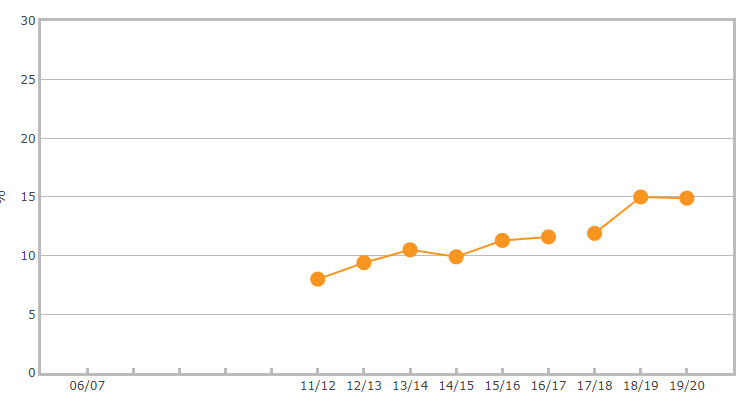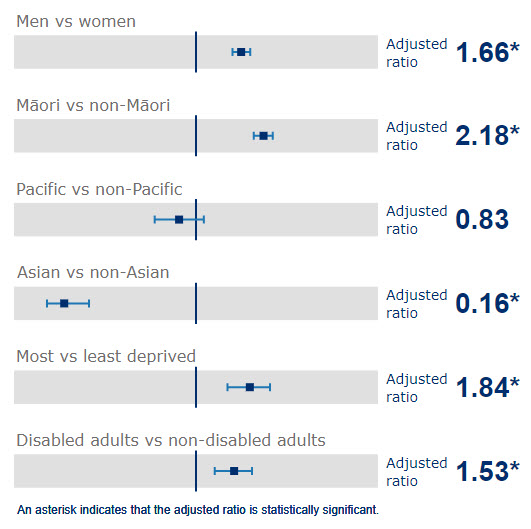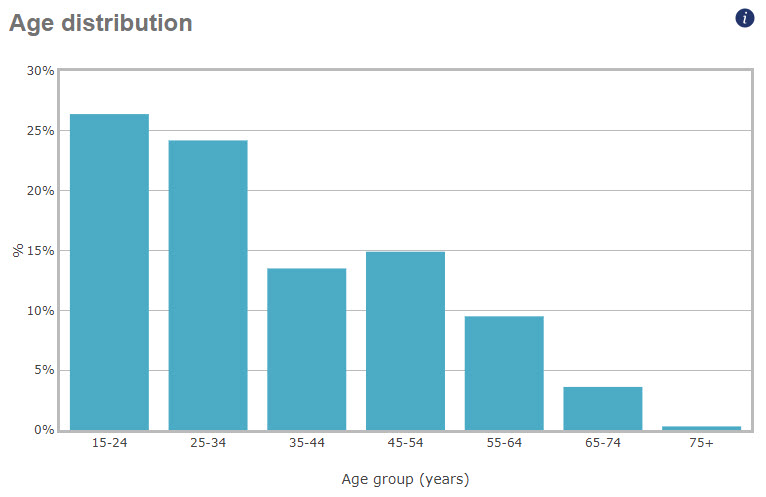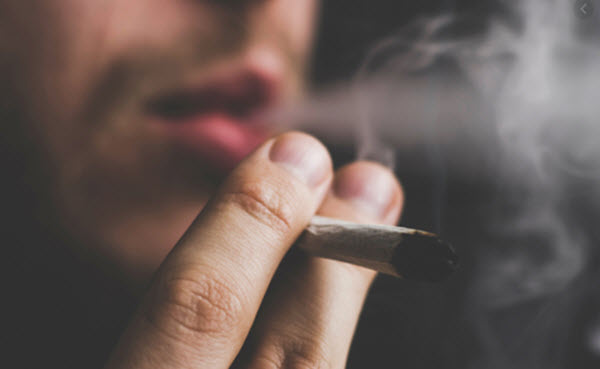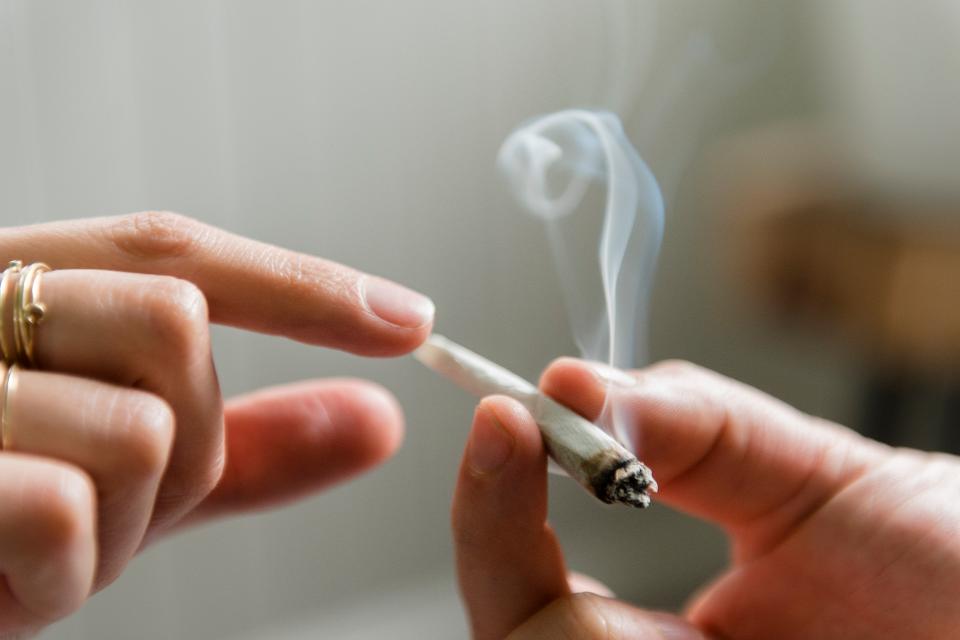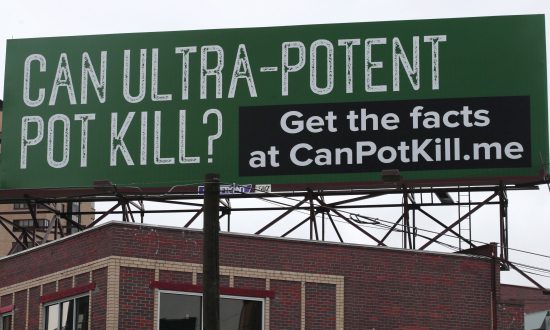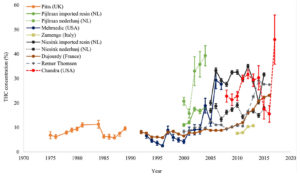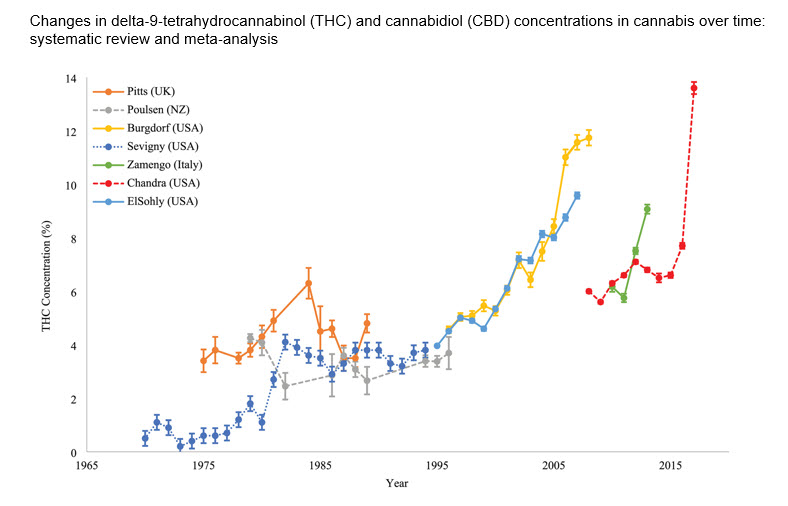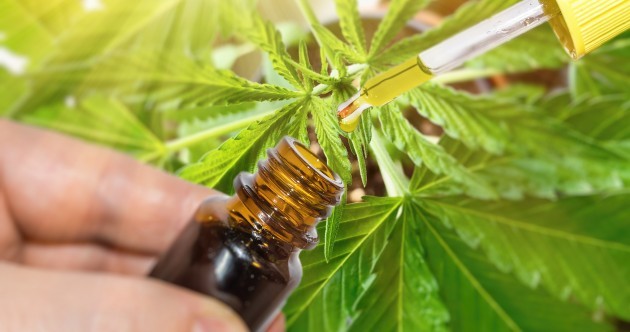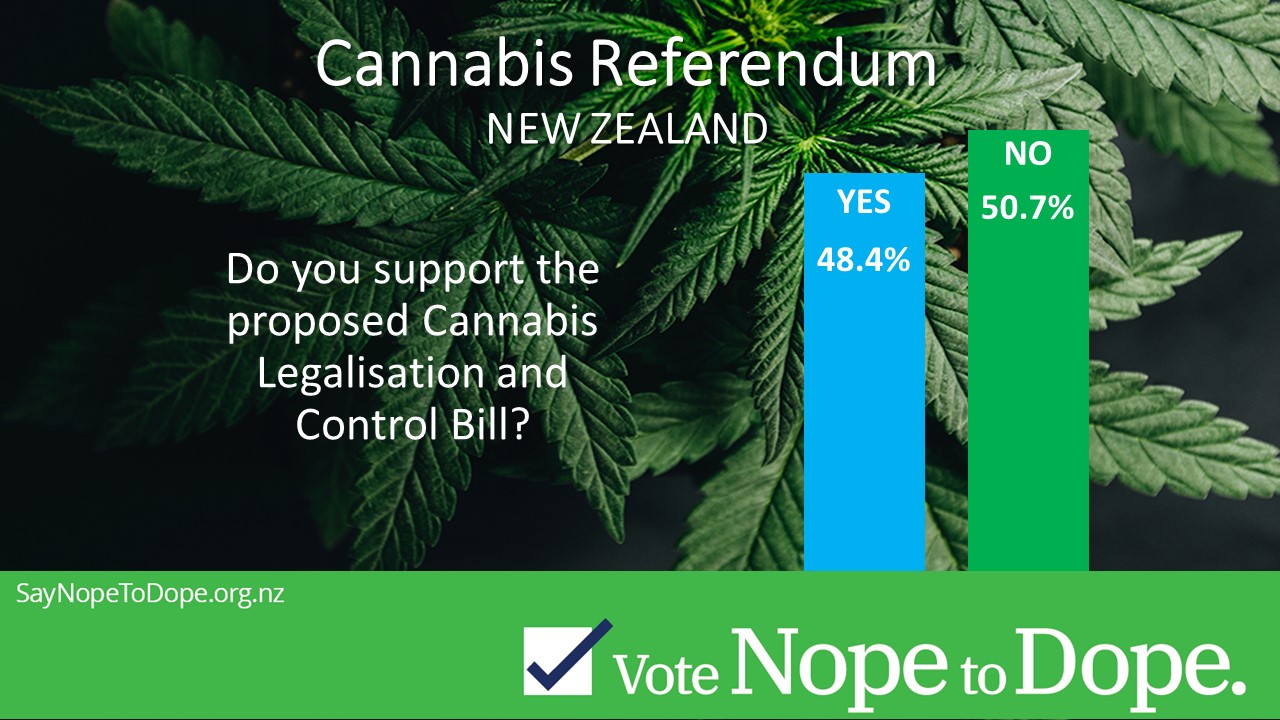
NewsHub 6 November 2020
New Zealand has voted not to legalise recreational cannabis, final referendum results show – despite special votes narrowing the margin of defeat.
While they narrowed the margin of victory for the ‘no’ campaign, the newly counted votes weren’t enough to swing the referendum in favour of legalisation.
The final results showed 1,406,973 (48.4 percent) of Kiwis support bringing the Bill into force, with 1,474,635 (50.7 percent) against. Another 26,463 people (0.9 percent) did not clearly indicate the option for which they wish to vote.
The defeat means the Cannabis Legalisation and Control Bill will not be introduced to Parliament, and possession and consumption of cannabis will remain illegal under the Misuse of Drugs Act 1975.
READ MORE: https://www.newshub.co.nz/home/politics/2020/11/nz-election-special-votes-fail-to-swing-cannabis-referendum-weed-won-t-be-legalised-in-new-zealand.html
Tears and anger as special votes fail to flip narrow cannabis referendum loss
Stuff co.nz 6 November 2020
Say Nope to Dope spokesperson Aaron Ironside said the group was pleased, and relieved, with the result.
Despite their opposition to recreational cannabis, the group was backing further reforms for medicinal users.
“I think the reason that the no vote has won is enough New Zealanders believe enough reform has occurred with medicinal cannabis being legal, although that law obviously needs to be improved, and a change to the Misuse of Drugs Act. I think really this is a vote which says this is enough change for now.”
He felt medicinal cannabis needs to be made available to people who were sick and suffering.
“We think a no vote forces the Government to fix a broken law, rather than to try to overlook the weakness of that law by bringing in legalisation.”
READ MORE: https://www.stuff.co.nz/national/123324311/tears-and-anger-as-special-votes-fail-to-flip-narrow-cannabis-referendum-loss
Referendum on legalisation of cannabis narrowly fails after special votes counted
TVNZ One News 6 November 2020
Family First’s Bob McCoskrie of the Say Nope to Dope campaign said last week he was “pretty stoked”.
“We’ll celebrate the win, we’re glad New Zealanders said nope to dope and understood the perceived benefits of legalisation were not greater than the harms that were going to come on society.”
“It’s been a hard-fought campaign on both sides. It’s good we can have these sorts of debates.”
READ MORE: https://www.tvnz.co.nz/one-news/new-zealand/referendum-legalisation-cannabis-narrowly-fails-after-special-votes-counted
‘No’ vote for cannabis legalisation shrinks to 50.7 percent after final votes
Radio NZ News 6 November 2020
https://www.rnz.co.nz/news/national/430007/no-vote-for-cannabis-legalisation-shrinks-to-50-point-7-percent-after-final-votes
Gap closes on cannabis referendum but it still fails
NewsTalk ZB 6 November 2020
https://www.newstalkzb.co.nz/news/vote-2020/gap-closes-on-cannabis-referendum-but-it-still-fails/
Election 2020 final results: Prime Minister Jacinda Ardern won’t move on cannabis laws, has no regrets staying silent on her vote
NZ Herald 6 November 2020
https://www.nzherald.co.nz/nz/election-2020-final-results-prime-minister-jacinda-ardern-wont-move-on-cannabis-laws-has-no-regrets-staying-silent-on-her-vote/VKSNHFIKCN7TRWICKVR4LXKAGU/
Election 2020: Jacinda Ardern has no regrets about staying mum on cannabis despite close margin
NZ Herald 7 November 2020
Prime Minister Jacinda Ardern has not had a change of heart about keeping her cannabis vote secret despite the final, narrow margin in the referendum – only 2 per cent.
Ardern had voted to legalise cannabis for recreational use, but didn’t say how she voted until after the provisional results were revealed three weeks ago.
Say Nope To Dope spokesman Aaron Ironside says New Zealand has dodged a bullet by rejecting the legalisation of cannabis.
“In US states that have already legalised the drug, these states have seen a black market that continues to thrive, and sustained marijuana arrest rates.”
READ MORE: https://www.nzherald.co.nz/nz/election-2020-jacinda-ardern-has-no-regrets-about-staying-mum-on-cannabis-despite-close-margin/Q77WPTNS6F3LXTDNWI4VGW3G6A/
Referendum result a blessing for medicinal cannabis industry
Stuff co.nz 7 November 2020
Meanwhile the medicinal industry already has its enabling legislation.
The scheme became operational on April 1. It treats medicinal cannabis products like any other pharmaceutical product and requires them to be manufactured according to current good manufacturing practices and conform to strict quality standards.
The scheme also provides the ability for your local GP to prescribe cannabis based medication right now, though only about 5 per cent choose to.
The problem is that it’s expensive, currently, around $350 for a script though there are reports of over $400 for some products. That script might last you a month if you are lucky.
READ MORE: https://www.stuff.co.nz/business/opinion-analysis/300151873/referendum-result-a-blessing-for-medicinal-cannabis-industry?cid=app-iPhone
Cannabis referendum: Helen Clark urges Government to rethink its stubborn cannabis stance
NewsHub 7 November 2020
Checkpoint host Lisa Owen asked Clark how cannabis reform can progress from here.
“The country split down the middle on a particular concept of legalisation. And I think there’s every grounds now for the Government to be looking very carefully at this, beginning to discuss with other parties, including obviously the Green Party, on where to go from here.
“What I found as one who got quite involved in the debate was a lot of people said: ‘oh we’d like to decriminalise but quite legalised as a step too far’. Well, let’s take those people at their word.
“I think there will be a majority out there for some change, but a lot of discussion has to go on to determine what that change could be.”
READ MORE: https://www.newshub.co.nz/home/politics/2020/11/cannabis-referendum-helen-clark-urges-government-to-rethink-its-stubborn-cannabis-stance.html

